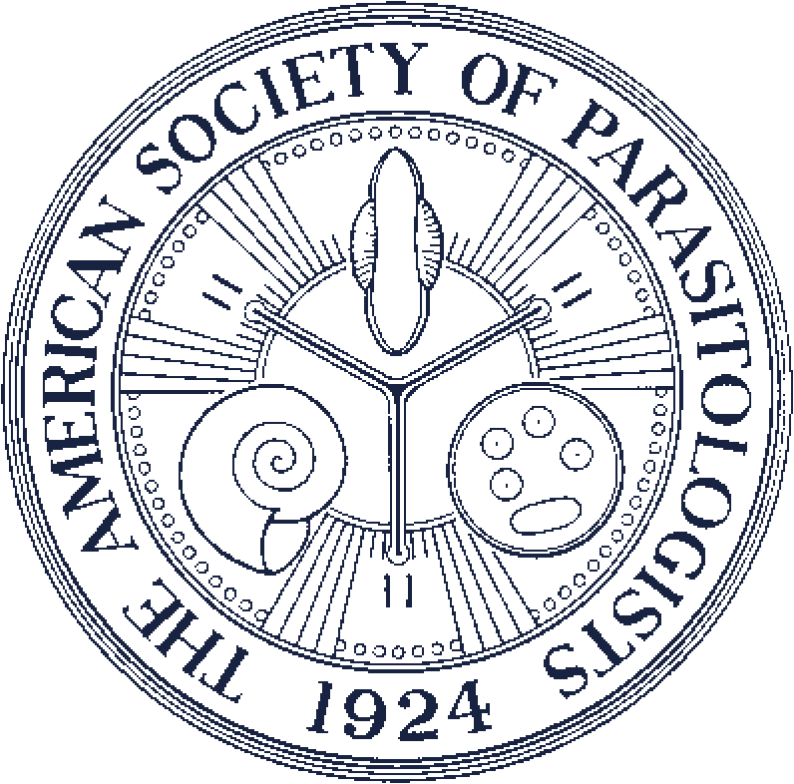MENINGOENCEPHALITIS IN STRANDED SMOOTH DOGFISH (MUSTELUS CANIS) INFECTED BY PHILASTERIDES DICENTRARCHI (PHILASTERIDA: PHILASTERIDAE) IN THE NORTHWESTERN ATLANTIC OCEAN
During August through September 2018, strandings and mortalities of smooth dogfish (Mustelus canis [Mitchill, 1815 [Carcharhiniformes: Triakidae]) occurred on Brighton Beach and Coney Island Beach (Brooklyn, New York). Each of the 8 smooth dogfish examined grossly exhibited hemorrhagic meninges, turbid and pink to red cerebrospinal fluid, and soft and friable olfactory lobes. Wet mounts of the cerebrospinal fluid and brain showed intense infection by scuticociliates in each smooth dogfish. Histopathologic examination of the infected brain revealed intensity-dependent necrotizing meningoencephalitis. We identified the scuticociliate as Philasterides dicentrarchiDragesco, Dragesco, Coste, Gasc, Romestand, Raymond, and Bouix, 1995 (Philasterida: Philasteridae). Small-subunit ribosomal deoxyribonucleic acid (SSU rDNA) sequences (604 base pairs) generated from our specimens were identical (100% nucleotide similarity) to morphologically validated GenBank sequences identified as P. dicentrarchi (JX914665). The 18S phylogenetic analysis revealed that all of the GenBank sequences identified as “Miamiensis avidus,” except for the type culture sequence KX357144 (which, as per the International Code for Zoological Nomenclature, objectively comprises Miamiensis avidusThompson and Moewus, 1964sensu stricto), represent P. dicentrarchi. Hence, mortalities of leopard sharks (Triakis semifasciata Girard, 1855 [Carcharniformes: Triakidae]) and of zebra sharks (Stegostoma tigrinum [Forster, 1781] [Orectolobiformes: Stegostomatidae]) in the Northeast Pacific Ocean represent infections by P. dicentrarchi, which have been misidentified as M. avidus previously, and that no evidence exists of M. avidus infecting an elasmobranch. We also provide a comprehensive list of scuticociliates reported to infect fishes and host species infected worldwide.ABSTRACT

(1) Light micrograph of Philasterides dicentrarchi (Philasterida: Philasteridae) in wet mount of infected smooth dogfish (Mustelus canis [Mitchill, 1815] [Carcharhiniformes: Triakidae]). (2) Infected smooth dogfish (Mustelus canis [Mitchill, 1815] [Carcharhiniformes: Triakidae]) brain showing congestion of the meninges and turbid red cerebrospinal fluid (arrow). Color version available online.

Histological sections (hematoxylin and eosin) of smooth dogfish (Mustelus canis [Mitchill, 1815] [Carcharhiniformes: Triakidae]) brain infected by Philasterides dicentrarchi (Philasterida: Philasteridae). (3) Low-magnification view of low-intensity infection in smooth dogfish brain showing intralesional scuticociliates infiltrating the neuroparenchyma (arrows). (4) Higher-magnification view of Figure 3 showing intralesional scuticociliates (c), separation and edema of the meninges (*), necrosis of the neuroparenchyma, and mixed inflammatory infiltrates (arrowheads). (5) Low-magnification view of high-intensity infection in smooth dogfish brain showing intralesional scuticociliates in neuroparenchyma (arrows), fibrinoid vascular necrosis, and liquefactive necrosis of the neuroparenchyma (*). (6) Higher-magnification view of Figure 5 showing intralesional scuticociliates (c), necrosis, mononuclear inflammatory infiltrates (lymphocytes and macrophages) (arrows), and polymorphonuclear inflammatory infiltrates (granulocytes) (arrowheads). Color version available online.

Phylogenetic relationships of scuticociliates genetically similar to Philasterides dicentrarchi (Philasterida: Philasteridae) reconstructed with the SSU rDNA using Bayesian inference. Scale bar in substitutions per site. Sequence generated herein in bold.
Contributor Notes
